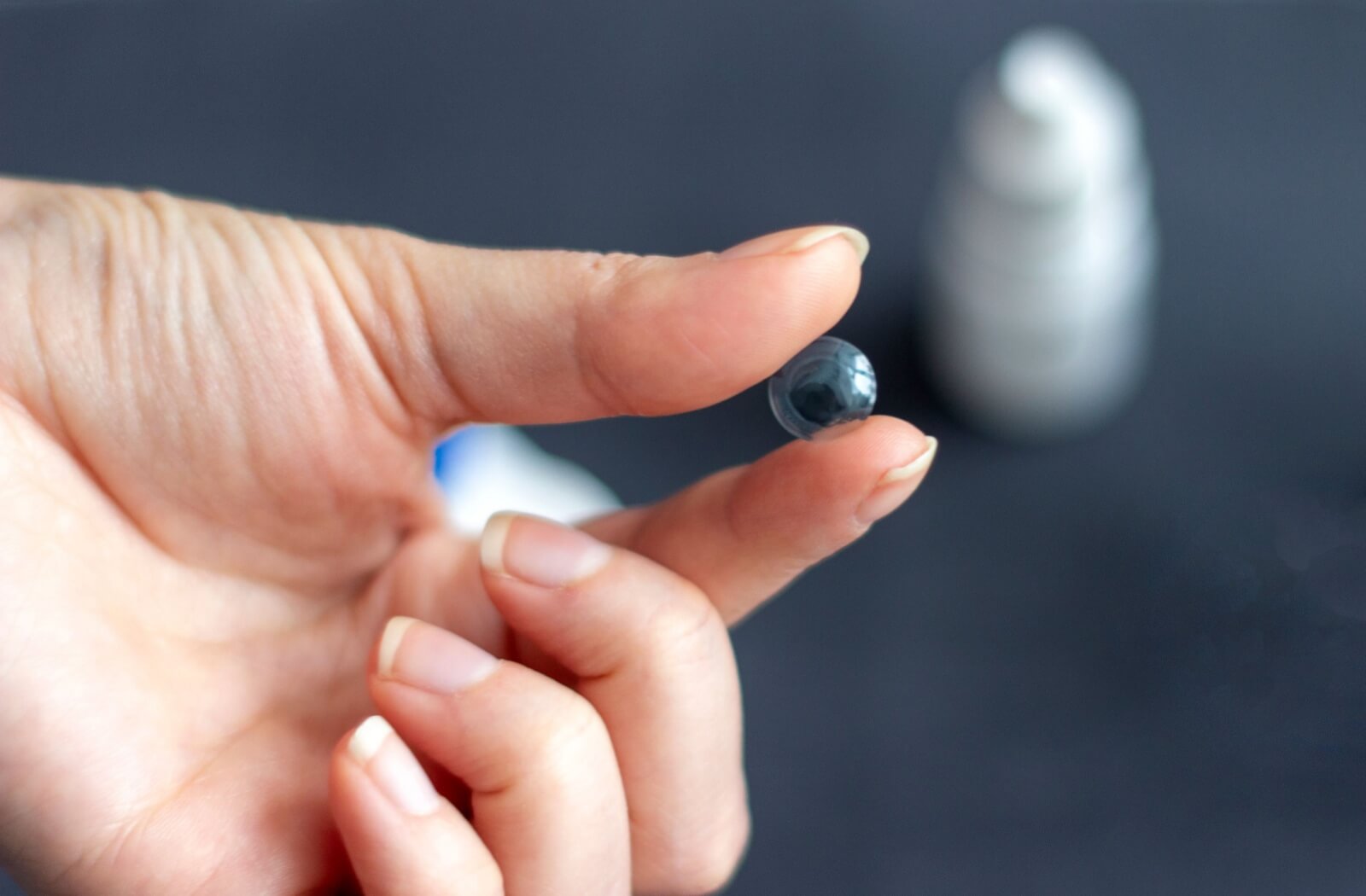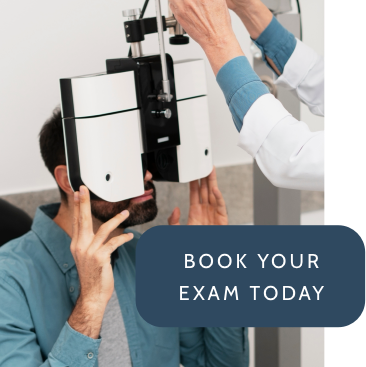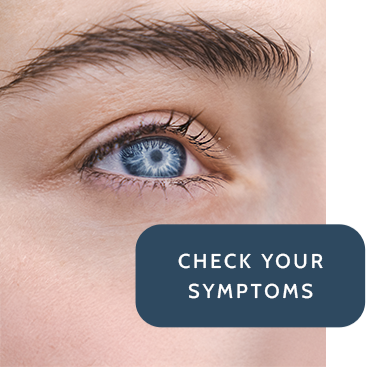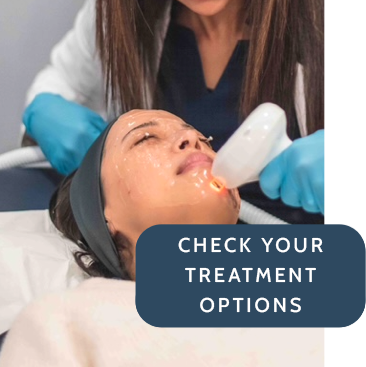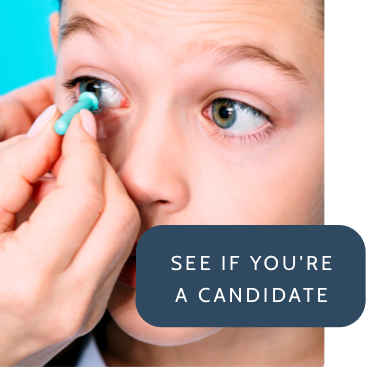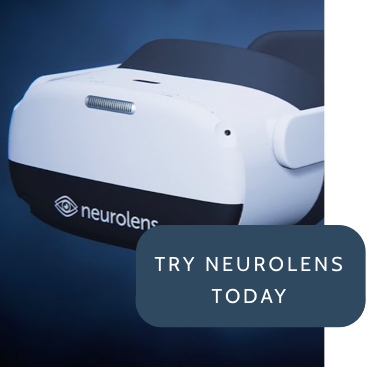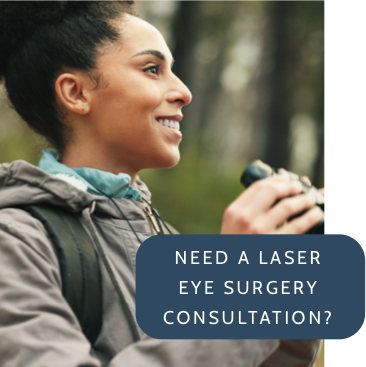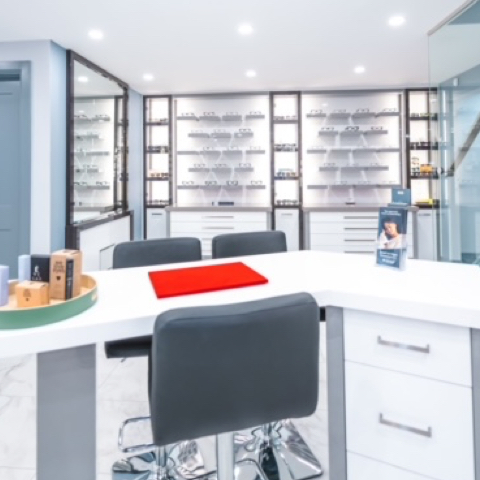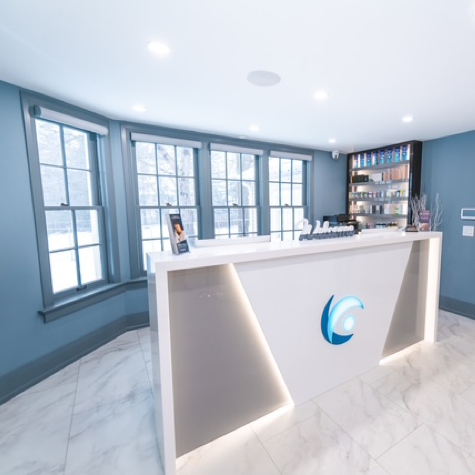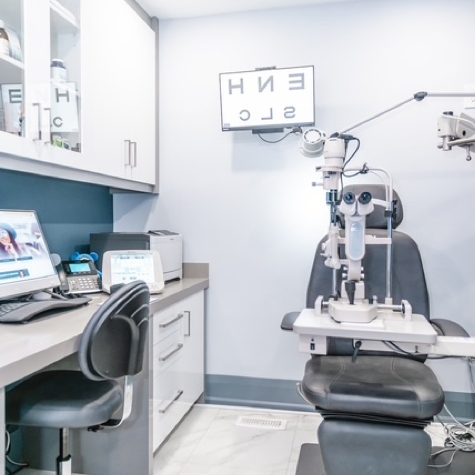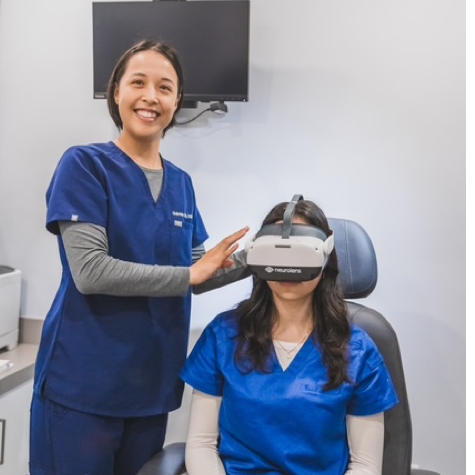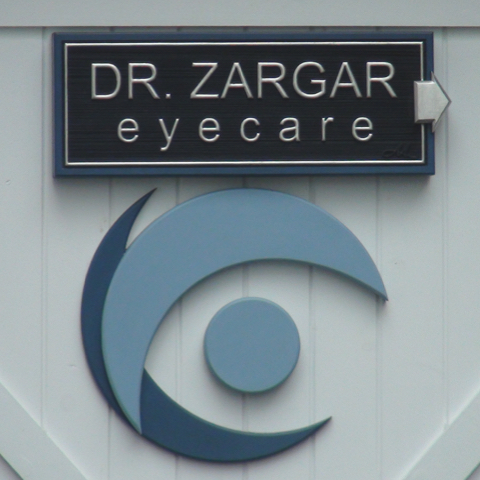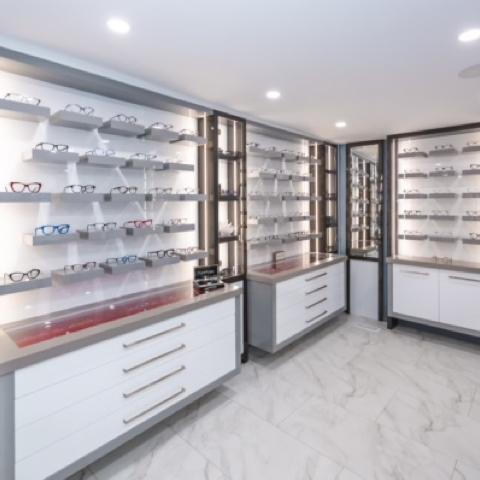Myopia, commonly known as nearsightedness, is becoming increasingly prevalent worldwide. Traditionally, myopia has been corrected by wearing glasses or contacts, or by using eye surgery to correct vision. However, there are other possible approaches.
Orthokeratology lenses, also known as ortho-k, are specialty contact lenses that are worn at night but correct vision during the day. Ortho-k contact lenses can’t cure myopia but they can help manage myopia by preventing the condition from progressing.
What Is Myopia?
Myopia is a common eye condition where distant objects appear blurry while close objects can be seen clearly. Myopia occurs when the eyeball is too long or the cornea has too much curvature. This irregular shape causes light entering the eye to focus incorrectly on the retina (the light-sensitive tissue at the back of the eye), making distant objects look fuzzy.
Common causes of myopia include genetic and environmental factors such as prolonged close-up tasks like reading or using digital devices.
Myopia symptoms include:
- Blurry distant vision
- Eye strain
- Squinting
- Headaches
Myopia usually develops in childhood, often as early as 6 or 7, though it can progress faster. When myopia progresses, it can lead to high or severe myopia. High myopia poses additional risks, such as an increased likelihood of developing serious eye conditions like retinal detachment, glaucoma, and cataracts later in life. Understanding these risks is crucial for treating and managing myopia effectively.
What Is Ortho-K?
Orthokeratology (ortho-k) lenses are special hard gas-permeable contact lenses that temporarily reshape the cornea by flattening it such that light entering the eye focuses directly on the retina. This results in clearer vision. These lenses are worn overnight, allowing you to experience clear vision during the day without needing glasses or regular contact lenses.
Ortho-k is particularly beneficial for individuals with mild to moderate myopia. However, ortho-k may not be appropriate for everyone. Individuals with severe dry eye, corneal irregularities, or certain eye diseases may not be good candidates for ortho-k. It’s essential to consult with your eye doctor to determine if ortho-k is the right choice for you.
Can Ortho-K Cure Myopia Permanently?
There is no cure for myopia. Once you develop myopia, you can’t cure it permanently or reverse it. However, you can treat myopia to provide vision clarity and use myopia management strategies to slow or prevent the progression of myopia in children and teens.
The Ortho-K Experience
Getting orthokeratology contacts involves a thorough eye examination to assess your suitability for the treatment. If your child is a good candidate, your eye doctor will take corneal measurements to create custom contact lenses designed specifically for their eyes.
During the fitting session, your eye doctor will teach you how to properly insert, remove, and care for ortho-k lenses. Wearing ortho-k contacts regularly at night can provide clear vision during the day.
While ortho-k can provide clear vision and slow the progression of myopia, its effects are not permanent. The cornea will gradually return to its original shape once the lenses are no longer worn at night, causing one’s vision to revert to its previous state. This makes ongoing use of ortho-k lenses necessary to maintain its benefits.
Regular eye exams are crucial for monitoring your eye health and making sure ortho-k treatment remains effective in slowing or halting myopia progression.
Other Myopia Control Treatment Methods
Ortho-k is not the only treatment option for myopia control. Other methods include daily contact lenses, eyeglass lenses, and eye drops.
MiSight Contact Lenses
MiSight contact lenses are soft, daily contact lenses for children with myopia, which allow a child to see at all distances. These contact lenses also make use of peripheral defocus, which helps light refract in front of the retina and halts eye growth, thereby slowing the progression of myopia..
Unlike ortho-k lenses, which require you to follow your eye doctor’s instructions for cleaning and storing your lenses in order to prevent eye infections, MiSight contact lenses are daily disposable lenses for children with less likelihood of an injury or eye infection.
MiyoSmart Lenses
Like MiSight lenses, MiyoSmart lenses use peripheral defocus to slow myopia progression. However, MiyoSmart lenses are lenses for glasses. The design of Miyosmart lenses features a multiple segment technology to provide clear central vision at all distances with peripheral defocus.
Atropine Eye Drops
Near-focused work for long periods leads to over accommodation of the eye, a contributing factor to eye lengthening and myopia progression. Low-dose atropine eye drops in children can reduce myopia progression by dilating the pupils and temporarily paralyzing the eye’s focusing muscles to relax the eyes’ focusing mechanisms.
Advanced Myopia Control with Ortho-K
Ortho-k contact lenses offer a promising solution for managing myopia and its progression, particularly for children and teenagers. While ortho-k doesn’t provide a permanent cure, it can significantly improve quality of life by reducing dependence on glasses and contact lenses and the risk of eye diseases later in life.
If your child has myopia and you’re considering ortho-k or another myopia control option, book an appointment with Dr. Zargar Eyecare to determine how to best preserve their vision.

